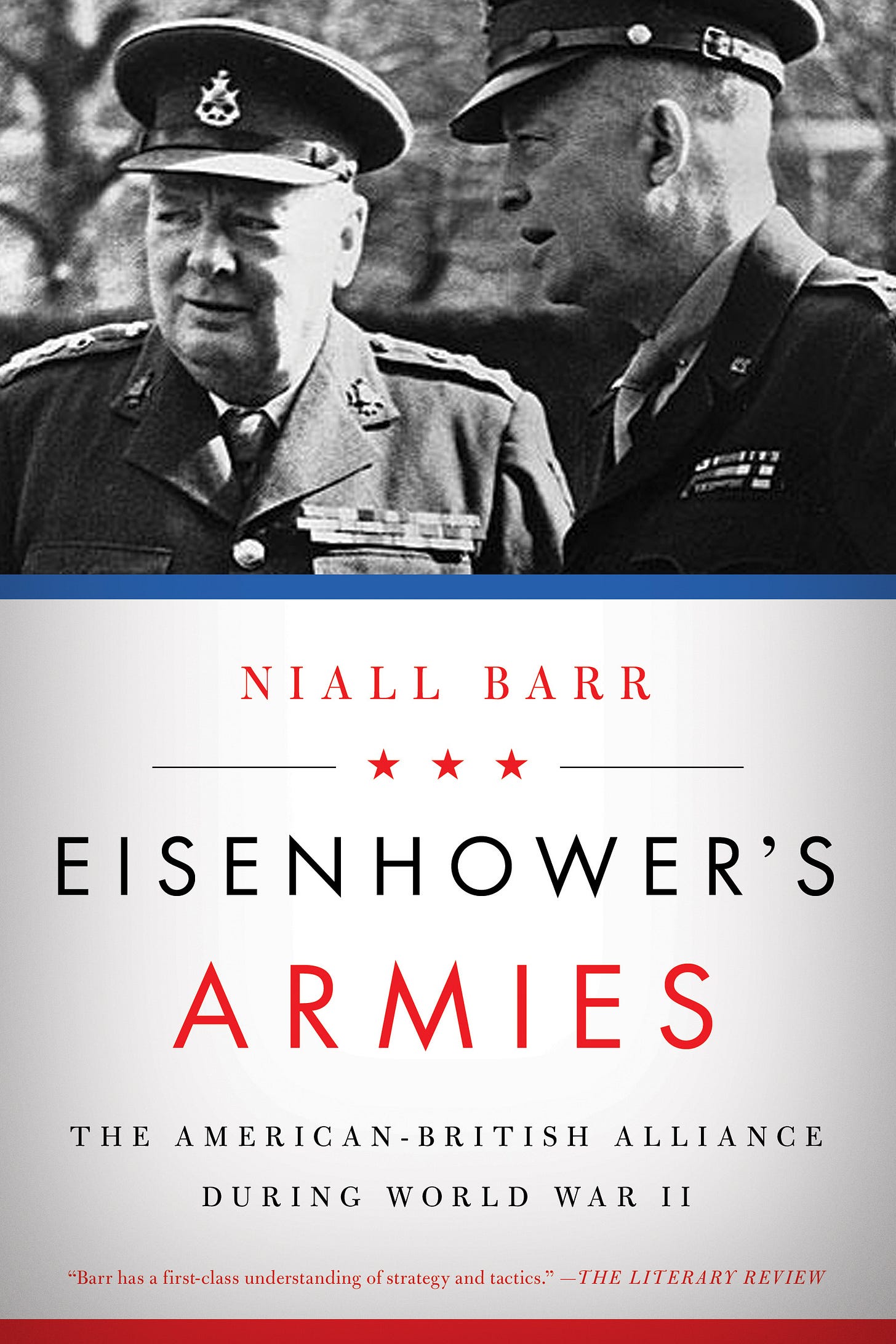Short Reviews for April 2024
The Beginning Place, Kiki Kallira Breaks a Kingdom, 1776, Eisenhower's Armies
The Beginning Place, by Ursula K. Le Guin (240 pp; 1980)
Who should read this? People who like evocative portal fantasies and don't mind unanswered questions.
This short fantasy felt idyllic, but left me at the end still with most of my questions unanswered, and wondering what LeGuin meant with the imagery she uses.
Tired of his dead-end life, our protagonist finds a gateway to a magical world on Narnia time, and camps out there just to rest. Later, a young woman who's found the same magical world finds him there, and shows him to a local village she's befriended... where the people are being fenced in by some magical force, and they commission the two Earthlings to slay it. Yet the quest is not as simple as it seems.
Nor is it as clear as I hoped. I'm left wondering what the magical force (in the end) really is, and why our protagonists leave their relationship with the local village hanging so.
Beyond just these questions, all the rich imagery LeGuin uses to make the otherworld seem timeless is left without fulfillment. And, why do our protagonists give up so much rich magical imagery in the end? Perhaps LeGuin meant it to be a symbol of a step on the way to real life change as they fall in love with each other? If so, I have to grant it works as allegory. But it doesn't hang together at face value.
Kiki Kallira Breaks a Kingdom, by Sangu Mandanna (352 pp; 2021)
Who should read this? People who like fast-paced portal fantasies that tease out implications.
Our young protagonist sees her sketchbook (full of drawings of an invented world inspired by Indian mythology; she's Indian-British herself) turn real, and her invented young demon-hunter invites her into that world to stop a demon lord from returning to the real world.
This's a fun story, with adventure and twists and whimsical inventions turning out to have rough edges once they become real.
That's the best part of the story, I think: Mandanna frequently shows us what feels like a common trope, and then later pulls out some implications of it that I hadn't thought of earlier. For example, an invented world turning real feels great - but what do people think of such artistic flourishes as an inaccessible floating castle in the sky? Or more deeply, a housefull of demon-fighting kids look great in art, especially to a kid artist - but what do they actually feel about having such a seemingly-hopeless mission? Things like this are teased out and held up and explored very ably in fun ways.
I enjoyed the plot twists here, especially how they all did feel warranted in retrospect because of implications like these. Kiki's own character growth, especially, is very nicely done in ways I wouldn't have expected at the start.
1776, by David McCullough (386 pp; 2005)
Who should read this? People interested in the American army in the Revolution.
I'd enjoyed this book when I first read it years ago, and enjoyed it again now.
In 1776, the nascent United States triumphed with the British evacuation from Boston, failed abjectly at New York, and then succeeded with Washington crossing the Delaware at Trenton. It's a good frame for a story, and McCullough uses it very ably.
The American army's amateur nature comes through loudly and clearly. Even Washington failed repeatedly - first in wanting to attack Boston, and then in trying to defend New York in the face of the British navy sailing all around the city. But he had what it took to hold the army together, and he knew how to make a good stroke at Trenton and then retreat rather than risking it all again.
Yet this very amateur nature makes it a microcosm of America itself - a nation conceived in liberty, which even in the face of disaster would not dream of forcing its citizen-soldiers to reenlist but rather plead with them. (And they did reenlist.) McCullough doesn't explicitly say this, but he keeps hinting it. That's the beauty and wonder of the American Revolution.
Eisenhower's Armies: The American-British Alliance during World War II, by Niall Barr (576 pp; 2015)
Who should read this? People interested in World War II at the diplomatic level.
This's a history of how the British-American alliance in World War II worked out on the military level to bring about far closer cooperation than ever before between allies. For example, in World War I, the armies largely fought different wars side-by-side; it took years even for a single supreme commander to be appointed because no one was willing to take orders from another nation. In World War II, there were common procurement and intelligence services almost as soon as America joined the war, and a common Supreme Commander from mid-1942 on.
This book tells how that happened, and how it worked out - the arguments and the difficulties and the successes. Managing this relationship required many people's diplomatic talents. Even into 1945, generals were regularly talking with their respective governments over the heads of their nominal commanders, and their respective mass media were seizing on indiscrete words to (rightly or wrongly) lambast their allies. The alliance - whether the military commanders on the field, or their governments - had to keep smoothing over things like this and cooperating anyway.
There was a good reason why Eisenhower commanded both Torch and Overlord: he had shown those rare talents in great measure. Of course, an American commander was pretty much required, since America was supplying most of the troops by 1944. And, perhaps Marshall could have done the job too, as Roosevelt planned for a while. But, Marshall had what was needed to strategize the alliance from home in DC (thus why Roosevelt wasn't willing to let him leave), and Eisenhower clearly had what was needed in the field.
But this telling of the story seems to compromise two ways of telling it. It doesn't give a detailed point-by-point index; it's written as a narrative for the popular press. But that narrative is compromised as a story, because - thanks to Montgomery's and Patton's jealousy, which was never struck down - we don't get a fitting deneaument to the story except the war in itself ending.
I'd recommend this book to people interested in the subject, though it could have been told better.








Marshall: clearly nominative determinism.
I'm currently reading a biography of the ordinary language philosopher J. L. Austin by M. W. Rowe, much of which examines his career in British military intelligence during World War II. Apparently he was successful enough to become a key source for people like Eisenhower—an unusual secondary career for an academic philosopher!